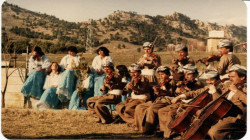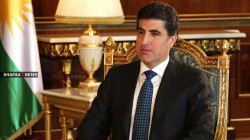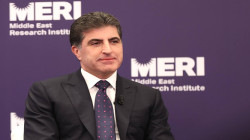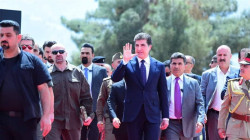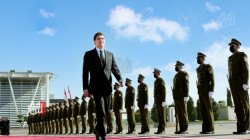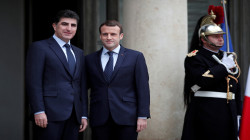Navigating electoral tensions: Nechirvan Barzani's pursuit of unity and democracy in Kurdistan
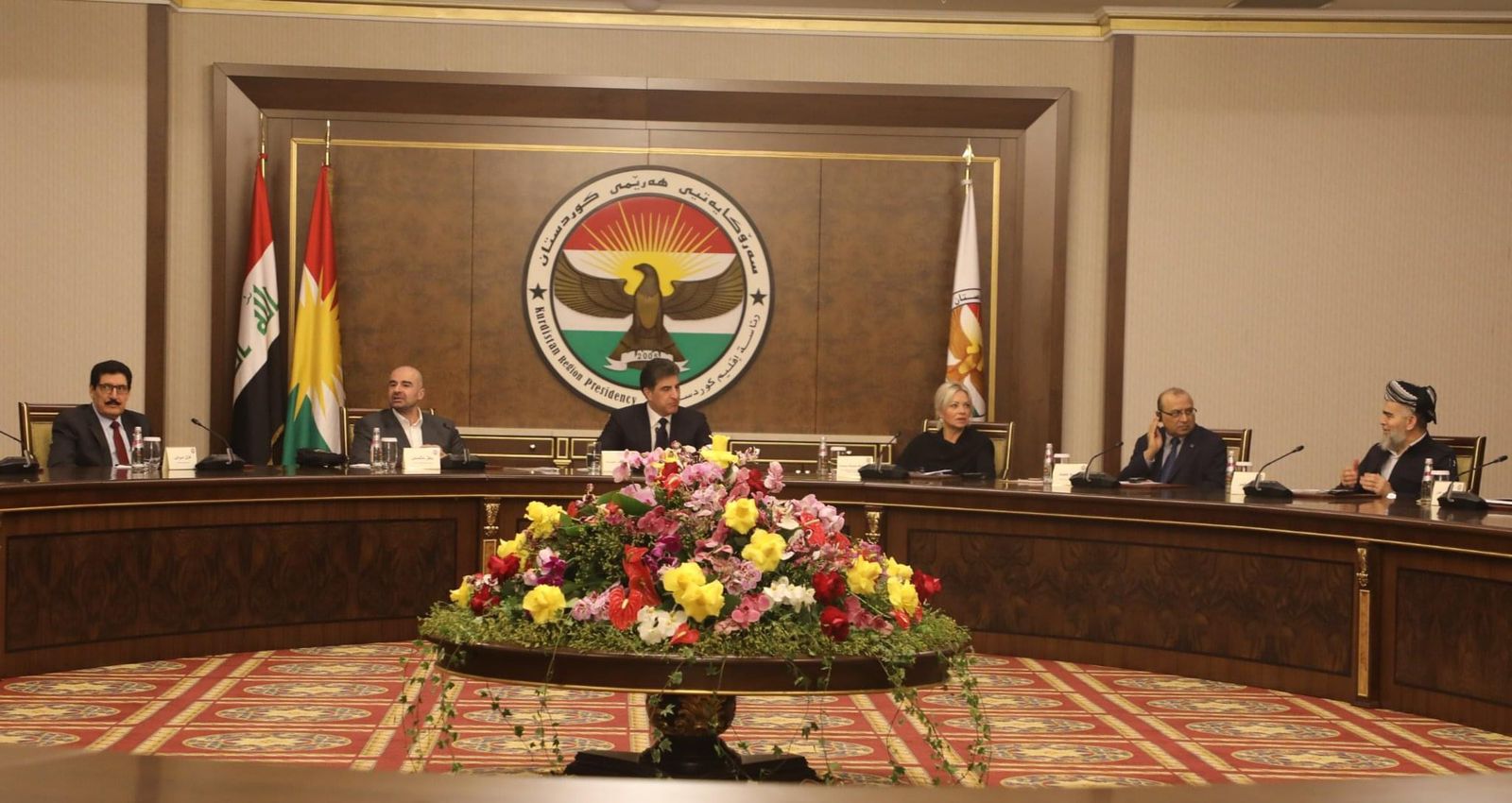
Shafaq News / While the adage "every delay brings a blessing" is widely recognized, it may not hold true for the impending sixth election in the Kurdistan Region. The same disputes and controversies that have caused prior postponements now threaten to impede the democratic process, potentially obstructing the electorate from selecting their legislative and executive representatives. Nevertheless, Nechirvan Barzani, the region's president, seems determined to secure his constituents' political rights despite the mounting demands and pressures from the West for elections and the ongoing partisan discord.
Before embarking on a crucial visit to al-Sulaymaniyah in May 2022, Barzani underscored the importance of cooperation and dialogue, noting that neither the region nor its people would benefit from strife, as the future of all parties is inherently intertwined.
Although the region has witnessed five parliamentary elections since 1992, the upcoming polls carry particular weight due to the stable security landscape, ongoing relations between Erbil and Baghdad, vital oil agreements underpinning the regional budget, and significant shifts in the broader geopolitical milieu, impacting Tehran, Riyadh, Ankara, and Damascus. Observers anticipate that these changes will reverberate throughout Iraq and the surrounding region.
As the region's president, Barzani is assiduously addressing multiple challenges to ensure citizens retain their right to elect representatives and guide the political, economic, and social development in alignment with societal aspirations for a thriving future.
In a recent Eid al-Fitr message, Barzani implored political factions in Kurdistan and Iraq to treat the holiday as a fresh start for unity, cohesion, collaboration, and conflict resolution, rallying all to work in concert towards a brighter future for their people and nation.
Before this address, a delegation of regional clerics extolled the president for his unrelenting pursuit of political stability, unity, and conflict resolution. They expressed optimism that his efforts would facilitate tension reduction and the cessation of disagreements.
As reported on the official presidential website, Barzani maintained that a positive outlook is crucial for resolving the internal crisis and outstanding issues with Baghdad, as there exists no alternative but to reach an accord, emphasizing that the path towards mutual understanding is already underway.
Elections often function as barometers for assessing the stability of a political system and the prevailing security conditions. Consequently, Nechirvan Barzani recently implored Iraqi Prime Minister Mohammed Shia al-Sudani to mediate between the Kurdistan Democratic Party (KDP) and the Patriotic Union of Kurdistan (PUK) in an attempt to bridge their differences, coinciding with his participation in the Baghdad Forum.
Barzani's appeal specifically addressed the relationship with the PUK, arguing that the withdrawal of the PUK's ministerial team from the regional government is counterproductive, given the PUK's integral role in the government's formation. He stressed that significant progress had been made following the reconciliation between the KDP and the PUK, with former President Jalal Talabani and President Masoud Barzani taking commendable strides in this direction. Barzani emphasized the imperative for inter-Kurdish dialogue to address internal matters.
Demonstrating his commitment to resolving disputes, Barzani contended that the PUK's ministerial absence hampers the government, asserting that engaging within the government enables constructive discussions and solution development. Consequently, he and the regional government's leader invited the PUK to return and address the issues.
Barzani is acutely aware of both the situation's gravity and the West's manifest interest in the region's electoral affairs, exemplified by US Ambassador Elena Romanowski's reiterated dedication to the internal stability of the region and its ties with Baghdad, as well as British Ambassador Mike Bryson's recent meeting with Barzani, which focused on resolving internal conflicts and maintaining the electoral schedule.
Barzani likely understands the US's hesitance to fundamentally intervene in regional political developments, including Iraq, as some observers have noted. The Biden administration's preoccupation with the Ukrainian conflict and efforts to counter China's growing influence account for this reluctance. Consequently, while the US remains keen to monitor and guide Iraq's political landscape, including the situation in the region, the onus ultimately falls on the regional powers to negotiate and reach agreements that serve their best interests.
Barzani also recalled an occasion in April when Masoud Barzani hosted a joint delegation of foreign missions in Erbil, which addressed the Kurdistan Region and the forthcoming regional parliamentary elections. The delegation, comprising diplomats from the United Kingdom, the Netherlands, Germany, the European Union, and the United States, lauded the region's adherence to democratic principles and Nechirvan Barzani's decision to schedule the elections.
The delegation emphasized the necessity of conducting elections, adhering to democratic values, and bolstering the foundations of legitimacy in Kurdistan. A month earlier, Maurizio Greganti, the Italian Ambassador to Iraq, also underscored the importance of parliamentary elections in Kurdistan.
Kurdish political analysts acknowledge the influence of international and external pressure in determining the region's election date, particularly through the international aid provided by some countries, such as the Global Coalition and Peshmerga forces.
The rapid succession of these Western signals and their previous criticism of the region for election delays are noteworthy. However, Nechirvan Barzani's executive order, signed on February 24, 2022, setting October 1 as the election date for the sixth session of the Kurdistan Parliament, amplified their significance. Yet, at the end of March 2023, Barzani issued a regional decree rescheduling the elections for November 18.
As each election approaches, it is no secret that political tensions and disputes resurface and intensify. The conflicts among Kurdish parties in parliament originate from the missed deadline for parliamentary elections in October of the previous year and the subsequent agreement of seven Kurdish parties to hold regional parliament elections based on "specific points."
In November of the prior year, seven Kurdish parties agreed to hold parliamentary elections using the electoral directorates system, implement the biometric voting method for the Iraqi Electoral Commission, and activate the electoral commission in the region. The parties stated that their meeting aimed "to prepare and understand amending the Kurdistan Parliament Electoral Law."
After more than a year of discord over the electoral district allocation system and the voter register in various parts of the region, the Kurdish parties, led by the KDP, the PUK, and other key players, reached an agreement to conduct elections.
The new political agreement stipulated dividing the region into four electoral districts, one for each of the region's four governorates—Erbil, al-Sulaymaniyah, Duhok, and Halabja. The voter records of the Independent High Electoral Commission in Iraq and the data from the Federal Ministry of Planning were used to determine the percentage of provincial seats. The agreement also called for election monitoring by the United Nations, international organizations, and the Federal Electoral Commission.
To date, the region has held five parliamentary elections: in 1992, 2005, 2009, 2013, and 2018. The most recent election in 2018 saw the participation of 59% of eligible voters in the region.
In the 2018 elections, a total of 29 lists and political entities participated, with only 16 lists securing the 111 parliamentary seats. Among these seats, 11 were reserved for national and religious minorities, allocated as follows: five seats for Turkmens, one for Christians, and one for Armenians.
The Electoral and Referendum Commission has identified five legal prerequisites for conducting elections. The first is the reconstitution of the Commission Council, whose legal term expired in 2019, to complete the nine-seat quorum of the Board of Commissioners by appointing individuals to two vacant positions.
Currently, only two prerequisites are met: the regional decree setting the election date and the stipulated time frame of at least six months before the election date. This may indicate that holding elections within the deadline set by the region's presidency will be difficult, emphasizing the need for parliament to amend the electoral law, determine the type of electoral districts, and allocate a special budget for the elections by the regional government.
Observers note that unresolved conflicts persist among regional political parties, leading to the extension of the parliamentary mandate in October despite the predetermined regional election date. Upon the announcement of the November 18 election date by Kurdistan's presidency, the PUK, the KDP's primary partner, quickly expressed criticisms and reservations, marking the beginning of attempts to resolve the crisis. Although seven parties, including the two sides, reached a preliminary agreement on five items to establish consensus on organizing elections, they maintain that no final agreement has been reached among the political forces on the electoral law, indicating continued political differences.
Observers believe that this announcement was made without a final and comprehensive agreement among the region's political process parties, potentially undermining consensus-building efforts, particularly given the tentative understandings on election conduct that still need to evolve into a successful agreement.
Moreover, observers argue that conflicts center on the commission, electoral legislation, quota seats, voter registers, and other contentious issues to be resolved before the election, particularly between the PUK and the KDP.
According to Shafaq News Agency, PUK leader Burhan Sheikh Ra'ouf said, "The PUK requires holding elections by amending the current election law or preparing a new one, as well as forming a new commission and updating the voter register," adding, "We also want minorities to have a special register and a special electoral district to compete in the next elections."
Notably, there are calls for the Federal Court in Baghdad to approve the Iraqi Independent High Electoral Commission's supervision of the electoral process in Kurdistan, which could ease internal Kurdish tensions and foster greater unity among various parties. The Federal Court in Baghdad has not yet determined whether to challenge the legitimacy of Kurdistan Parliament's extension.
After canceling the extension of the Kurdistan Parliament's mandate on May 3, the Federal Court postponed the lawsuit's resolution until May 26, as no alternative was available to resolve the crisis and hold new elections without involving the Federal Election Commission. The Iraqi Commission was summoned to explore whether holding elections through it was a viable option if the extension was canceled.
Furthermore, according to leaks, Federal Court judges expressed concern during side discussions that approving the extension of Kurdistan Parliament's term could set a precedent and support similar efforts to extend the Federal House of Representatives and parliamentary sessions' terms, jeopardizing Iraq's democratic political life.
The bill extending the term of the Kurdistan Parliament, which the complainants argue is illegal, was challenged in court. The court declined to grant the state order on the grounds that it was not urgent and instead interpreted it as a preliminary ruling on the matter.
The electoral law governing the Kurdistan region mandates that the nomination of a new president and the formation of a government are contingent upon the parliamentary bloc that secures the highest number of seats.
Subsequent to the extension of the Kurdistan Regional Parliament's term, Yusuf Mohammed, an erstwhile regional parliamentary speaker (2014-2015) and former federal parliamentary member, lodged a lawsuit against the current regional parliamentary speaker. This was soon followed by a comparable lawsuit filed by the Jil Jadid Alliance, as the Federal Supreme Court—the paramount judicial authority in Iraq—joined the case as a party.
The lawsuit encompassed a demand for adjudication on the unconstitutionality of the law extending the fifth session of the Kurdistan Parliament of Iraq (No. 12 of 2022) on the grounds of violating six constitutional articles within the region, in addition to the expiration of the fifth session of the parliament as of last November.
Individuals affiliated with the P.U.K. emphasize that the current election law's most prominent issue is the quota system, which limits minority representation to only the K.D.P.'s strongholds in Erbil and Duhok, while neglecting the representation of minorities in the P.U.K.'s bastions, the cities of al-Sulaymaniyah and Halabja. Coupled with a marked discrepancy in voter numbers between the 2018 and 2021 elections, the recent parliamentary elections saw a decline in voter turnout and an inability to update voter registers and the census.
Furthermore, observers maintain that the post-2021 election alliances among Kurdish parties unveiled disparities and Iraqi party interferences in Kurdish affairs. In response, the K.D.P. conceded the existence of numerous interventions and influences from Baghdad-based parties on what they described as "opposition" forces in the region, with the intent to destabilize the region and prevent the holding of elections.
Addressing the feasibility of holding elections, the K.D.P. asserted that they would proceed as planned despite the associated adverse consequences. They also affirmed that, despite differences with the P.U.K., they would engage in reciprocal visits to deliberate on several critical issues, including elections, oil, energy, and other matters, in a bid to promptly resolve all internal regional issues.
The proverb "there is a blessing in every delay" may not be applicable in this instance, as observers contend that further deferral of the polls could damage the region's reputation as a hub for political activity and liberties. Nechirvan Barzani has consistently advocated for the region's unity and internal strength, arguing that it bolsters their position in Baghdad, augments their role there, and safeguards their interests.
In this context, it seems that Nechirvan Barzani, renowned as a man of compromise and reconciliation, will be esteemed for his capacity to steer the region and its political forces towards electoral security, prioritizing the interests of the people whose economic, living, service, and political conditions bear significant influence, rather than allowing the situation to devolve into a conflict between multiple parties.
This perspective aligns with the Regional President's summary at the Baghdad Conference: "Undoubtedly, Kurdistan faces challenges, and I cannot claim that we are devoid of crises. Both within the Kurdistan Region and among parties, there are political issues. Nonetheless, our collective efforts are dedicated to resolving matters under the jurisdiction of the Kurdistan Region's presidency. My two vice presidents hail from the Gorran Movement and the P.U.K., respectively. We collaborate to transform the regional presidency into a unifying force, and we persist in our endeavors to address these issues."
Exclusive to Shafaq News Agency.
